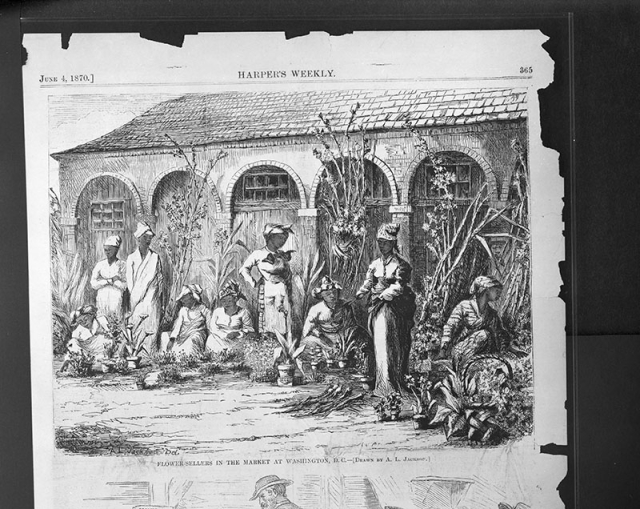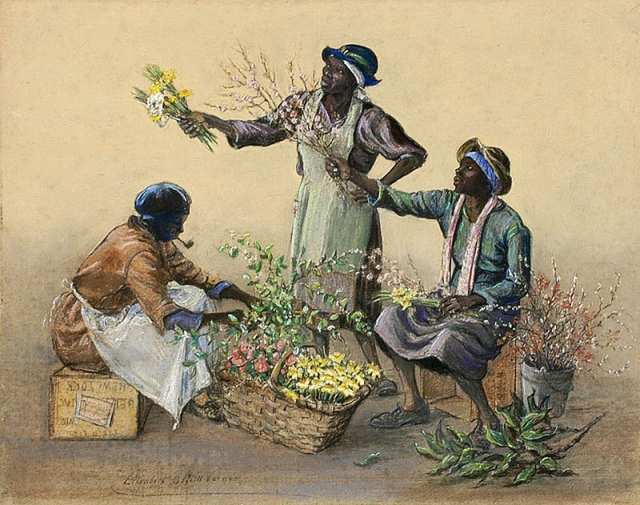The Legendary Flower Sellers
It won’t be January for long, and my thoughts are already on warmer weather and the arrival of spring! Typically, the arrival of spring is heralded by a number of traditions: the vernal equinox, the Hindu celebration of Holi, the Persian New Year, or the Japanese tradition of Hanami under the cherry blossoms. In the United States, our own National Cherry Blossom Festival in Washington D.C. commemorates a gift of Japanese cherry trees while also celebrating their springtime blooms. Prior to that gift of cherry trees in 1912, however, a different kind of tradition indicated the arrival of spring for those in our nation’s capital.
After the end of slavery in the United States, there were few (if any) avenues for recently freed Black people to establish themselves. The early days of Reconstruction saw the enforcement of “Black codes” – laws in southern states restricting the self-determination of African Americans by limiting their ability to be employed or paid fairly for their work. Out of, or despite, this oppression arose – as Abra Lee calls them – the “legendary flower sellers,” or Black women who came to the cities in spring to sell their flowers to the city-folk.

“Flower-sellers in the market at Washington, D.C.” Harper’s Weekly, 1870. Library of Congress, Prints and Photographs Division. Source
Black women outside Washington D.C. took charge of their unjust situation by becoming some of our nation’s earliest flower vendors. They would grow their flowers in rural areas, then bring their beautiful blooms into the cities to sell. The arrival of these women with their trays of flowers meant spring had arrived, too.
The Black women flower-sellers were not restricted to Washington D.C., or even to history. In the 19th century Black women selling flowers could be found in places like Richmond, Virginia, and Memphis, Tennessee, as well. The practice continues in Charleston, South Carolina, today.

“Symphony of Flowers” by Elizabeth Verner, circa 1949. The Johnson Collection, South Carolina. Source
Flower farming is now a major industry for the U.S., but, ironically, lacks color. Until Abra Lee’s talk (see below), I had believed floriculture to be a thoroughly European practice: starting in the Netherlands and following the paths of European settlers in America. History seems to have forgotten the significant role Black women played as both farmers and businesswomen, much like Black women today remain underrepresented in fields like botany and horticulture.
This year I look forward to spring in honor of these legendary flower sellers.
Explore more!
Abra Lee, founder of Conquer the Soil and 2019/2020 Longwood Fellow, recently gave a talk about “The Invincible Garden Ladies,” focusing on Black women in the history of horticulture. Beginning with the flower sellers story shared here, Lee explores the role that Black women have played as florists, horticultural teachers, nature writers and community members. Watch the recording, part of the Cummer Museum’s Culture & Conversation series.
Add new comment